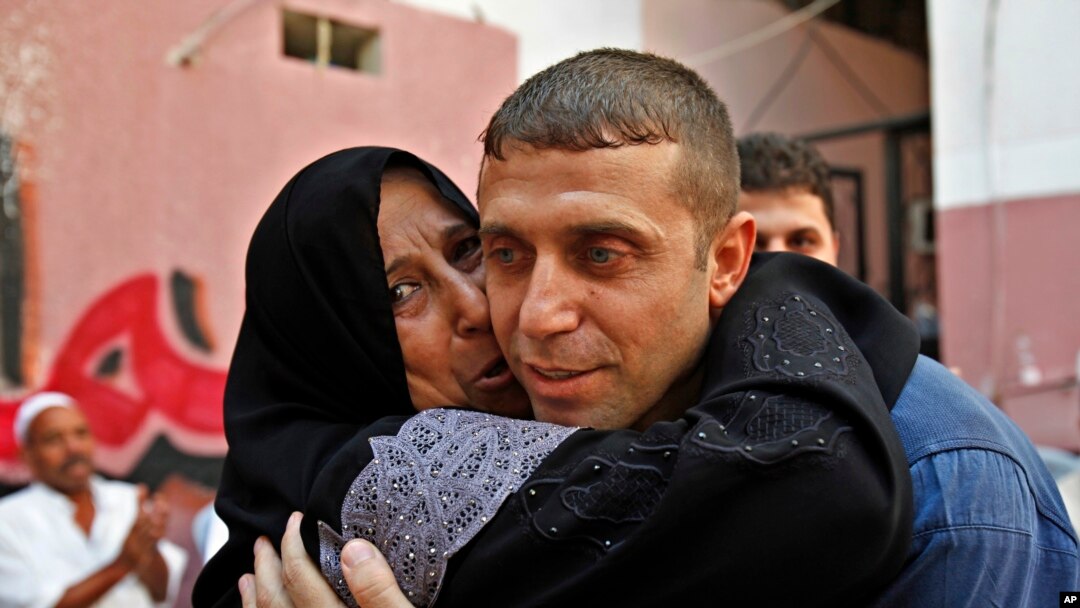STATE DEPARTMENT —
Israelis and Palestinians returned to the negotiating table Wednesday in Jerusalem, even as Israel pursues new settlement construction in occupied territories claimed by the Palestinians. The U.S. says it has serious concerns about the activity, and is encouraging this latest round of peace talks to move forward.
State Department spokeswoman Jen Psaki told reporters Wednesday the U.S. position on Israel’s settlement announcements has not changed.
“We don’t accept the legitimacy of continued settlement activity. These announcements come at a particularly sensitive time with the negotiations continuing in the region," said Psaki.
Psaki says U.S. Secretary of State John Kerry stressed to both Israeli Prime Minister Benjamin Netanyahu and Palestinian President Mahmoud Abbas Tuesday the importance of taking steps to create a “positive atmosphere” for the talks.
Senior Palestinian official Yasser Abed Rabbo described Israel’s announcements this week of more than 2,000 new settlement units in East Jerusalem and the West Bank as a threat to the negotiations.
But when pressed on whether the U.S. views such settlements as “illegal,” Psaki refused to say.
“I’m not going to get into legal interpretations from the podium," she said.
Secretary Kerry made headlines this week on a trip to South America when he said the U.S. views all Israeli settlements as illegitimate. But the State Department would not say whether he meant existing settlements in the West Bank and other territories - some of which have been in place for decades.
Kerry said continued building is expected, a point echoed by Anthony Cordesman of the Center for Strategic and International Studies. But Cordesman said the move is indicative of a larger issue.
“Announcing this type of activity - and at least tentatively the figures seem to indicate that these were settlements or new building that had already, at least, been planned - so the announcement didn’t mean quite as much as it might have. But certainly this is not an Israeli government clearly committed with any unity to peace," said Cordesman.
Lucy Kurtzer-Ellenbogen at the United States Institute for Peace says the real question is whether the announcements will continue.
“Should this mark the beginning of a steady and increasing drumbeat of more of the same, then it could have a long-term impact and there’s only so long that the Palestinians could continue to come to the table under those circumstances," said Kurtzer-Ellenbogen.
Late Tuesday, ahead of the talks, Israel released 26 Palestinian prisoners, a decision welcomed by the U.S. The prisoners, hailed by Palestinians as freedom fighters, have been called “terrorists” by Israelis angered by their release.
State Department spokeswoman Jen Psaki told reporters Wednesday the U.S. position on Israel’s settlement announcements has not changed.
“We don’t accept the legitimacy of continued settlement activity. These announcements come at a particularly sensitive time with the negotiations continuing in the region," said Psaki.
Psaki says U.S. Secretary of State John Kerry stressed to both Israeli Prime Minister Benjamin Netanyahu and Palestinian President Mahmoud Abbas Tuesday the importance of taking steps to create a “positive atmosphere” for the talks.
Senior Palestinian official Yasser Abed Rabbo described Israel’s announcements this week of more than 2,000 new settlement units in East Jerusalem and the West Bank as a threat to the negotiations.
But when pressed on whether the U.S. views such settlements as “illegal,” Psaki refused to say.
“I’m not going to get into legal interpretations from the podium," she said.
Secretary Kerry made headlines this week on a trip to South America when he said the U.S. views all Israeli settlements as illegitimate. But the State Department would not say whether he meant existing settlements in the West Bank and other territories - some of which have been in place for decades.
Kerry said continued building is expected, a point echoed by Anthony Cordesman of the Center for Strategic and International Studies. But Cordesman said the move is indicative of a larger issue.
“Announcing this type of activity - and at least tentatively the figures seem to indicate that these were settlements or new building that had already, at least, been planned - so the announcement didn’t mean quite as much as it might have. But certainly this is not an Israeli government clearly committed with any unity to peace," said Cordesman.
Lucy Kurtzer-Ellenbogen at the United States Institute for Peace says the real question is whether the announcements will continue.
“Should this mark the beginning of a steady and increasing drumbeat of more of the same, then it could have a long-term impact and there’s only so long that the Palestinians could continue to come to the table under those circumstances," said Kurtzer-Ellenbogen.
Late Tuesday, ahead of the talks, Israel released 26 Palestinian prisoners, a decision welcomed by the U.S. The prisoners, hailed by Palestinians as freedom fighters, have been called “terrorists” by Israelis angered by their release.


